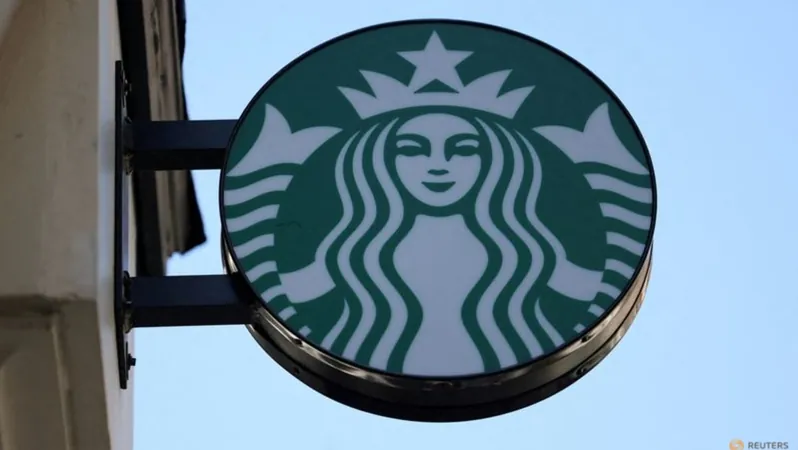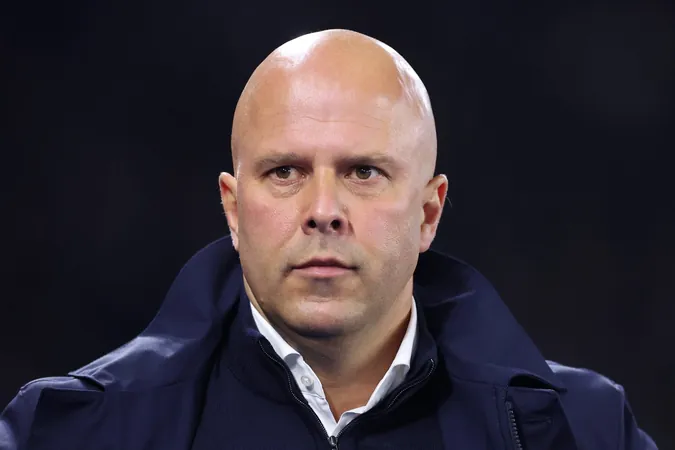
Starbucks Pushes Employees to Return to Office—Are You Ready to Risk Your Job?
2024-10-29
Author: Sarah
Starbucks' Return-to-Office Directive
Starbucks has officially issued a stern warning to its corporate employees: return to the office or face the threat of termination. Reports from Bloomberg reveal that starting in January, the beloved coffee chain will enforce a 'standardized process' to ensure compliance with its new return-to-office initiatives.
Consequences of Non-Compliance
In a memo obtained by Bloomberg News, the company stated that consequences for non-compliance could be 'up to, and including, separation' from the company. This marks a significant escalation in Starbucks' efforts to implement its previously announced hybrid work model, which requires employees to work from the office three days a week.
Current Work Policy
Last year, Starbucks directed that employees residing within commuting distance of its headquarters should be present in the office on Tuesdays, Wednesdays, and a third mutually agreed upon day. 'We are continuing to support our leaders as they hold their teams accountable to our existing hybrid work policy,' the company added in a statement on October 28.
Scope of Impact
This policy impacts approximately 3,500 corporate employees; however, the bulk of Starbucks' workforce is employed in its retail stores. This comes as part of a broader trend of corporate America pushing for a return to traditional office work following the disruptions brought by the COVID-19 pandemic.
New CEO's Flexible Work Arrangements
Notably, this announcement comes just two months after Brian Niccol stepped in as Starbucks' new CEO. His own flexible work arrangements—allowing him to use a corporate jet for commuting between his California home and the Seattle headquarters—have raised eyebrows among employees. Niccol's offer letter reportedly included provisions for a 'small remote office' at his California residence, allowing him to bypass the need for a permanent relocation.
Employee Reactions
In response to these recent developments, some Starbucks employees have expressed indifference toward Niccol's work setup, as long as he does not enforce overly strict in-office requirements.
Industry Trends
Starbucks is not alone in this movement; rival companies are similarly urging their staff back into the office. Amazon recently mandated five office days per week beginning next year, and Singapore-based ride-hailing company Grab announced a requirement for five days in the office starting December.
Financial Performance
Adding to the urgency of these measures, Starbucks recently reported disappointing sales figures for its fiscal fourth quarter. The company’s revenue declined by 3% to $9.1 billion from July to September, underperforming against analysts’ expectations of $9.4 billion, according to data from FactSet. Moreover, the adjusted earnings dropped by 24.5% compared to the prior year, falling to 80 cents per share versus the anticipated $1.03.
Conclusion
As Starbucks seeks to navigate these challenges—both in terms of workforce management and financial performance—the pressure is on employees to comply with the in-office work policy. Will this lead to heightened tensions within corporate walls, or can Starbucks strike a balance that fosters both productivity and employee satisfaction? Only time will tell.


 Brasil (PT)
Brasil (PT)
 Canada (EN)
Canada (EN)
 Chile (ES)
Chile (ES)
 España (ES)
España (ES)
 France (FR)
France (FR)
 Hong Kong (EN)
Hong Kong (EN)
 Italia (IT)
Italia (IT)
 日本 (JA)
日本 (JA)
 Magyarország (HU)
Magyarország (HU)
 Norge (NO)
Norge (NO)
 Polska (PL)
Polska (PL)
 Schweiz (DE)
Schweiz (DE)
 Singapore (EN)
Singapore (EN)
 Sverige (SV)
Sverige (SV)
 Suomi (FI)
Suomi (FI)
 Türkiye (TR)
Türkiye (TR)